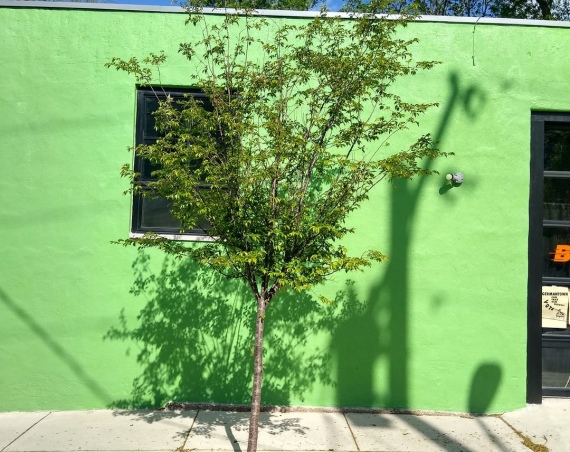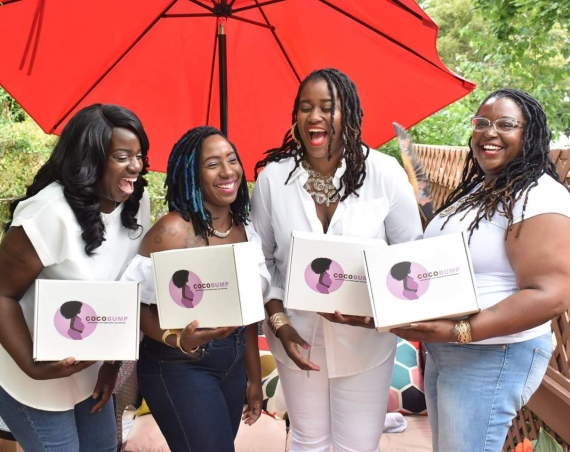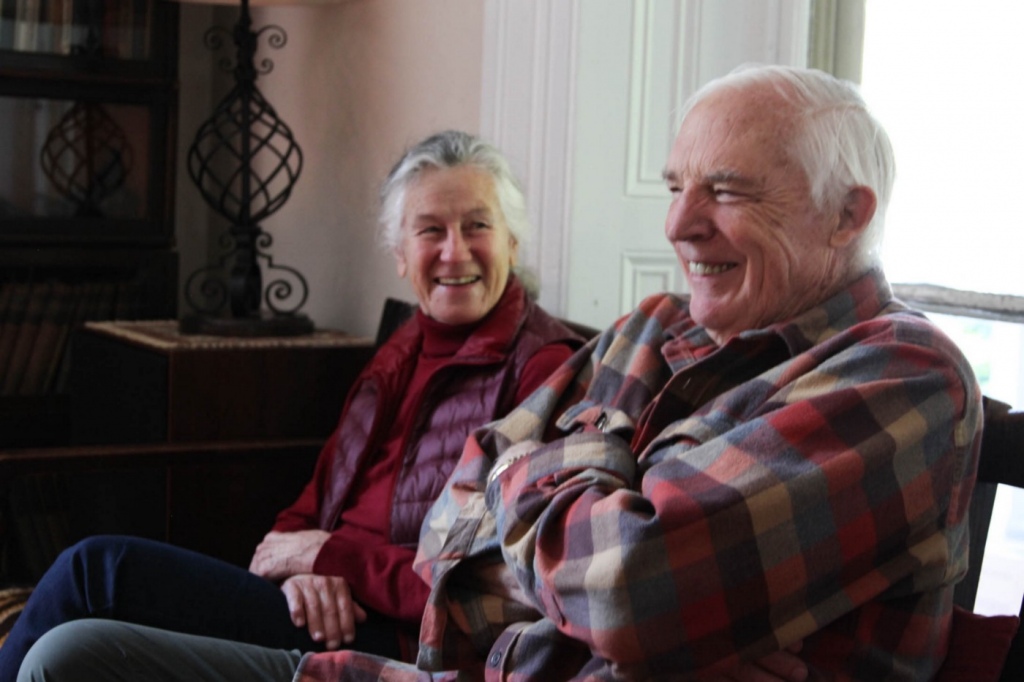
On a rustic couch in the living room of their home, between vinyl records and neatly organized shelves of books, Marjorie Russell recollected how she met her husband, Luke, while at Reed College in Portland, Oregon in 1958.
“His room was right down the hall from mine,” Marjorie, 78, said. “My room happened to have a gorgeous roll top desk. So I was sitting on it one day and this guy kind of poked his head in the door and he glanced around, looked at me and said, ‘May I have your desk?’”
“I said no,” Marjorie added, smiling at Luke, 79, who reached over to squeeze her into a hug.
“That was the beginning of the courtship — may I have your desk.”
The Russells, now retired, have spent most of their lives at the same address in the same neighborhood of Germantown since moving into their current home on Tulpehocken street in 1971, following the birth of their first son. Their sons are all grown up now with families of their own, and the Russells now share the space with their pets, a chinchilla and a Great Pyrenees sheepdog named Alice.
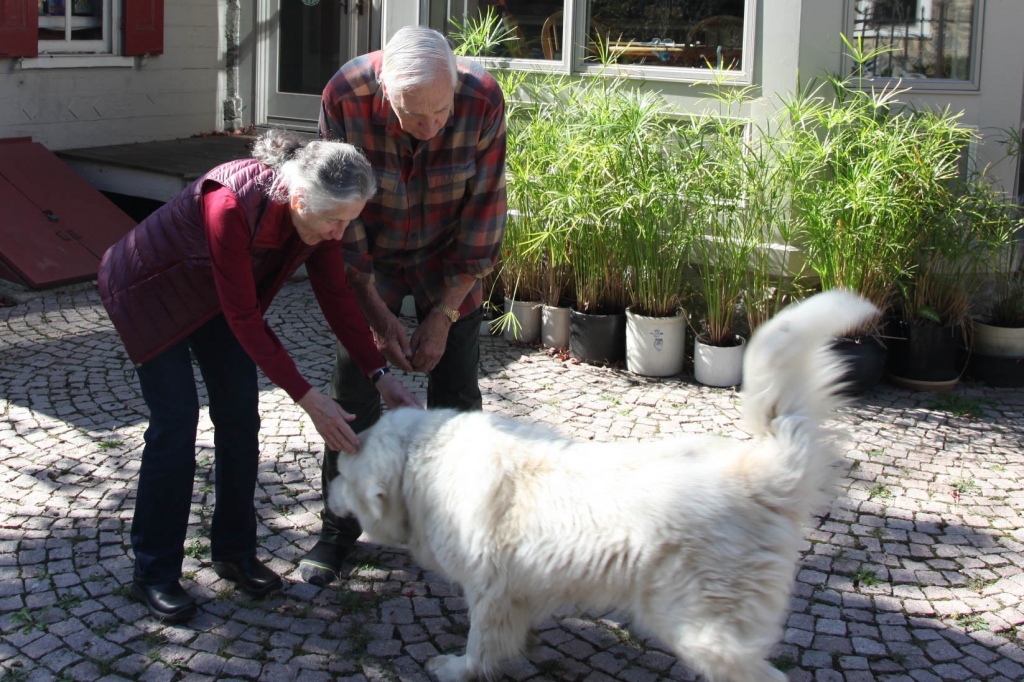
When they moved into the neighborhood that they would raise their family in, they were newcomers not only to the block, but to both Germantown neighborhood and Philadelphia. They moved to the city in the mid-1960s for work after spending several years living in Europe. But they quickly became involved in their community through an organization called the West Central Germantown Neighbors association, which works to preserve the neighborhood’s aesthetic and historic value.
Luke Russell saw the roots of the association in an earlier struggle over the Ebenezer Maxwell Mansion, a Victorian building on Tulpehocken street that was nearly demolished in the 1950s. Two neighborhood women, Claire Kovsky and Margaret Hawley, fought for and won protection for the building on the grounds that it had aesthetic and historic importance. The mansion is now managed by a nonprofit organization, which organizes tours and events for the public.
“They realized it would be good for the neighborhood if these houses were preserved,” Luke said.
But it wouldn’t be until the 1970s that the association would actually form, with the Russells as founding members. By then, redevelopment in the area had accelerated, and neighbors were concerned, particularly about construction that would threaten the character of the neighborhood as a residential community.
“People said, ‘We need to stop this or before long, we’re going to be a neighborhood of institutions with a few individual houses thrown in between,’” Marjorie said.
The association, of which Marjorie is the current president, has had many successes over the years, including the renovation of nearby Tulpehocken station, the prevention of planned highway construction through the neighborhood, and the entry of six square blocks of neighborhood into the National Register of Historic Places as the Tulpehocken Station Historic District.
One of the most recent of these accomplishments is the Tulpehocken Station Garden, a project that began in 2012. As its name suggests, the garden is located near the renovated Tulpehocken regional rail station, and was created out of a vacant strip of land that had previously been unused. Luke, who was the president of the association at the time, leveled the land himself with his tractor, which he can occasionally be seen driving on the streets of Germantown.
“It used to be a dump that’s entered into an orchard and garden and that has been just over the past six years,” Marjorie said. “It has really helped bring people together. Because, you know, you get volunteers, and they work there, and they get to know each other better. It’s just been a wonderful thing.”
Most of the plants in the garden are in some way edible, including a blueberry bush and a cherry tree. Whatever produce grows is available for anyone to take. However, the Russells said that the purpose of the garden was more to provide a way to connect people in the community to one another than to produce food efficiently.
“The harvest is the friendships,” Marjorie said.
The couple and two other community members, Linda Corsover and Jeff Smith, are set to receive an award from the board of trustees at the Ebenezer Maxwell Mansion in December for their work with the association, an honor Luke seemed unsure he individually deserved.
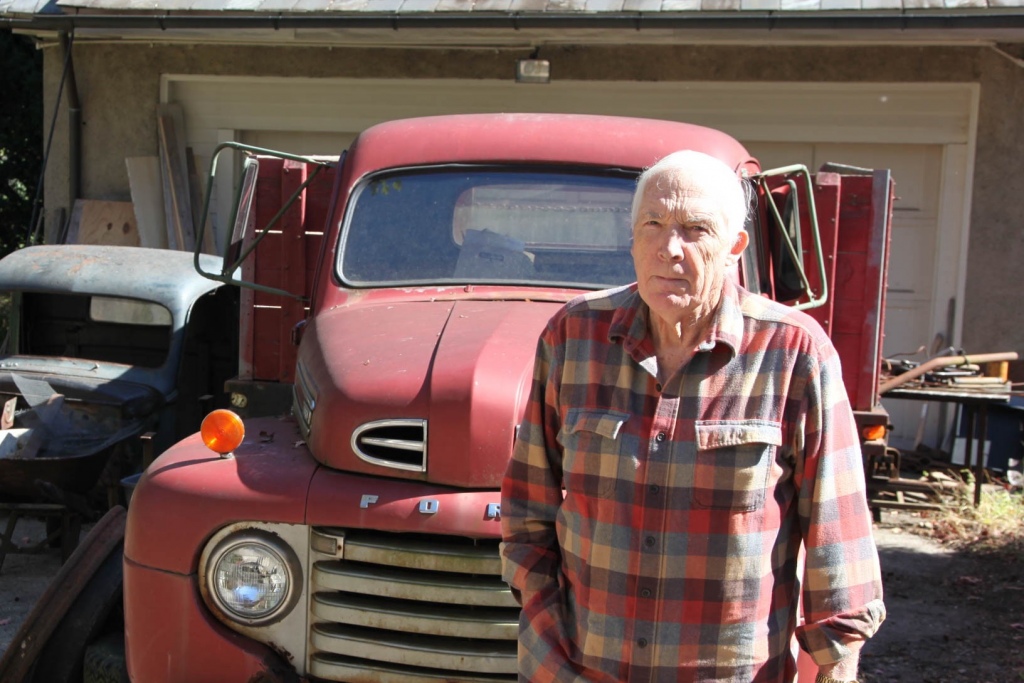
“I told them ‘I don’t want to do it,’” Luke said, regarding the ceremony the foundation will host. “‘But if you want me to do it, I have to bring two people with me who were more important than I was.’”
Luke said he believes that the honor belongs to the whole community.
“The neighborhood is not me, it’s not one person,” Luke said. “It’s the whole neighborhood that looks out for itself, and people that look out for each other.”


